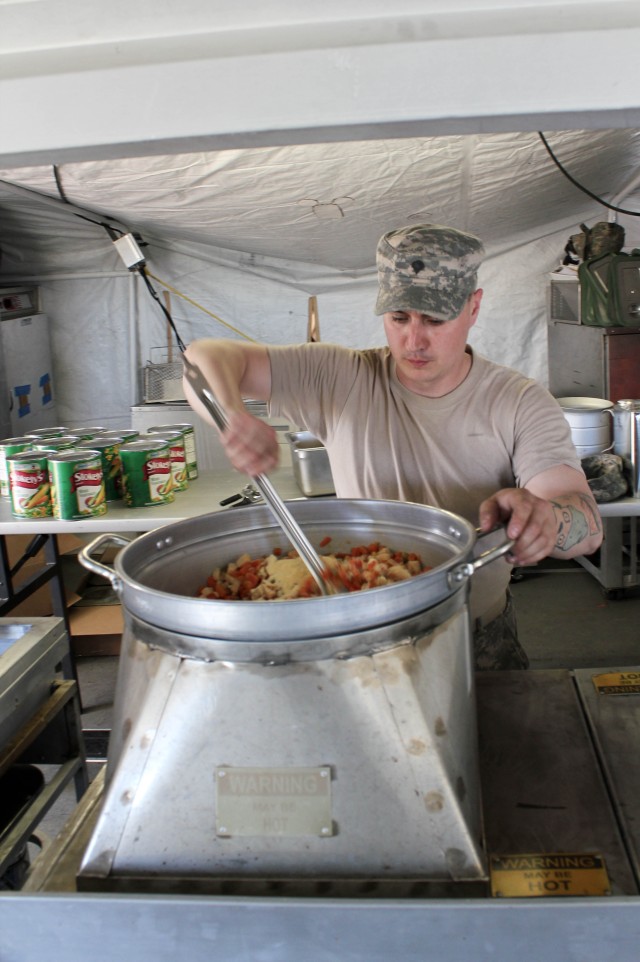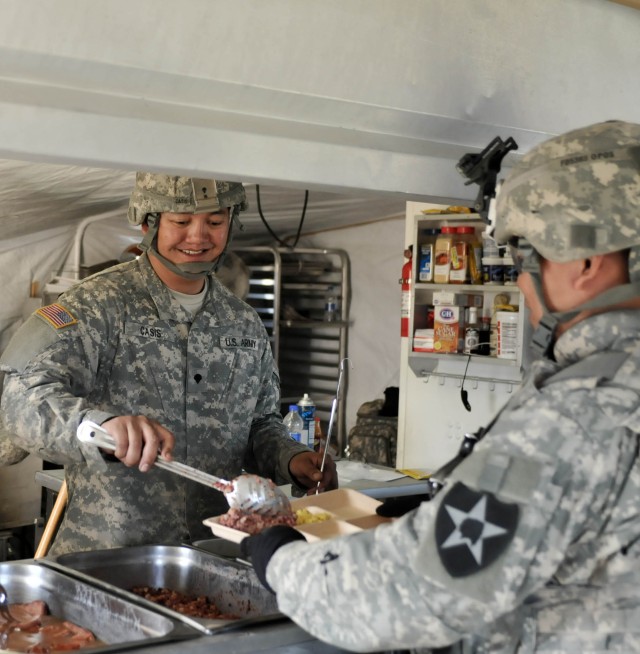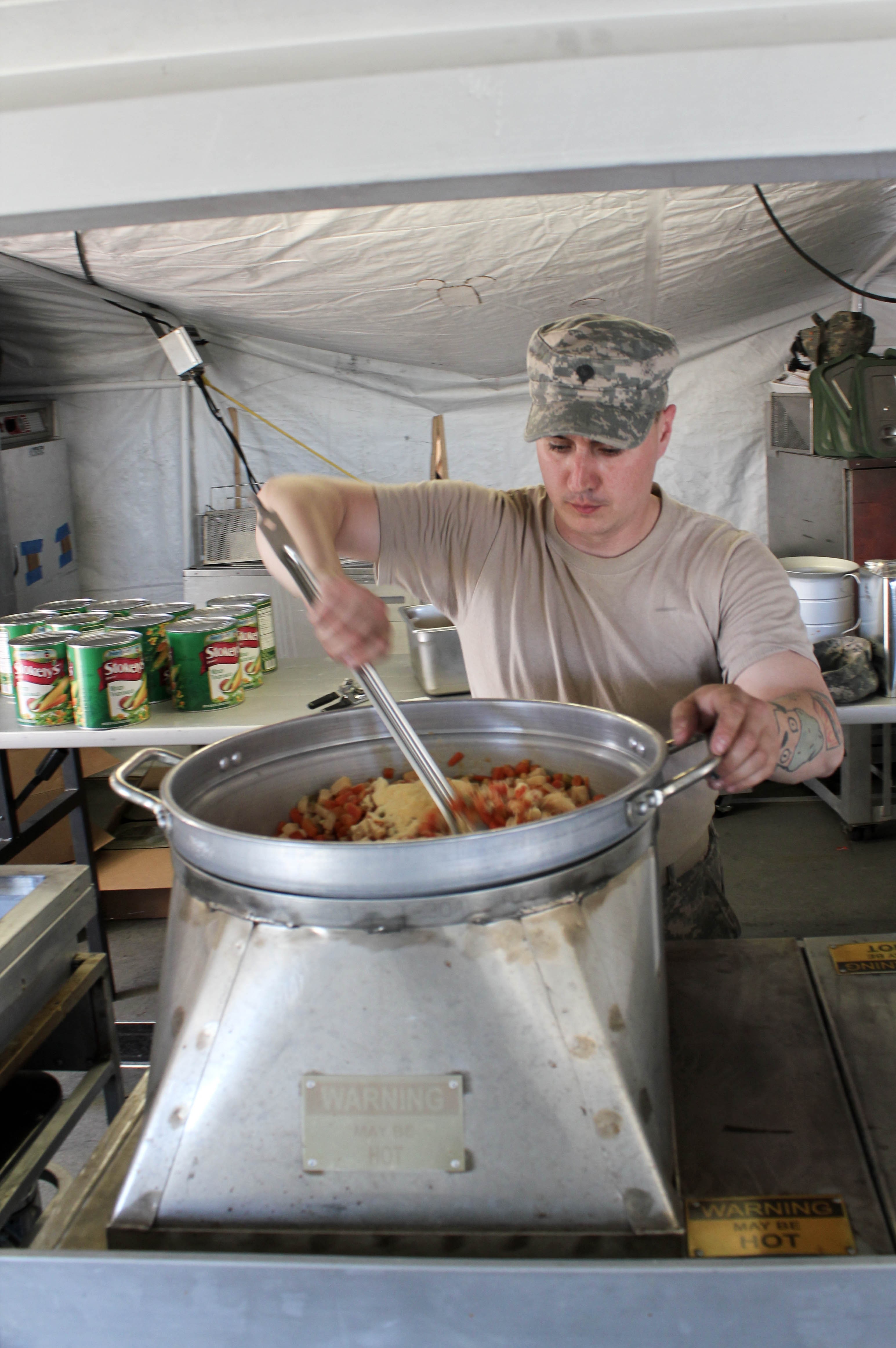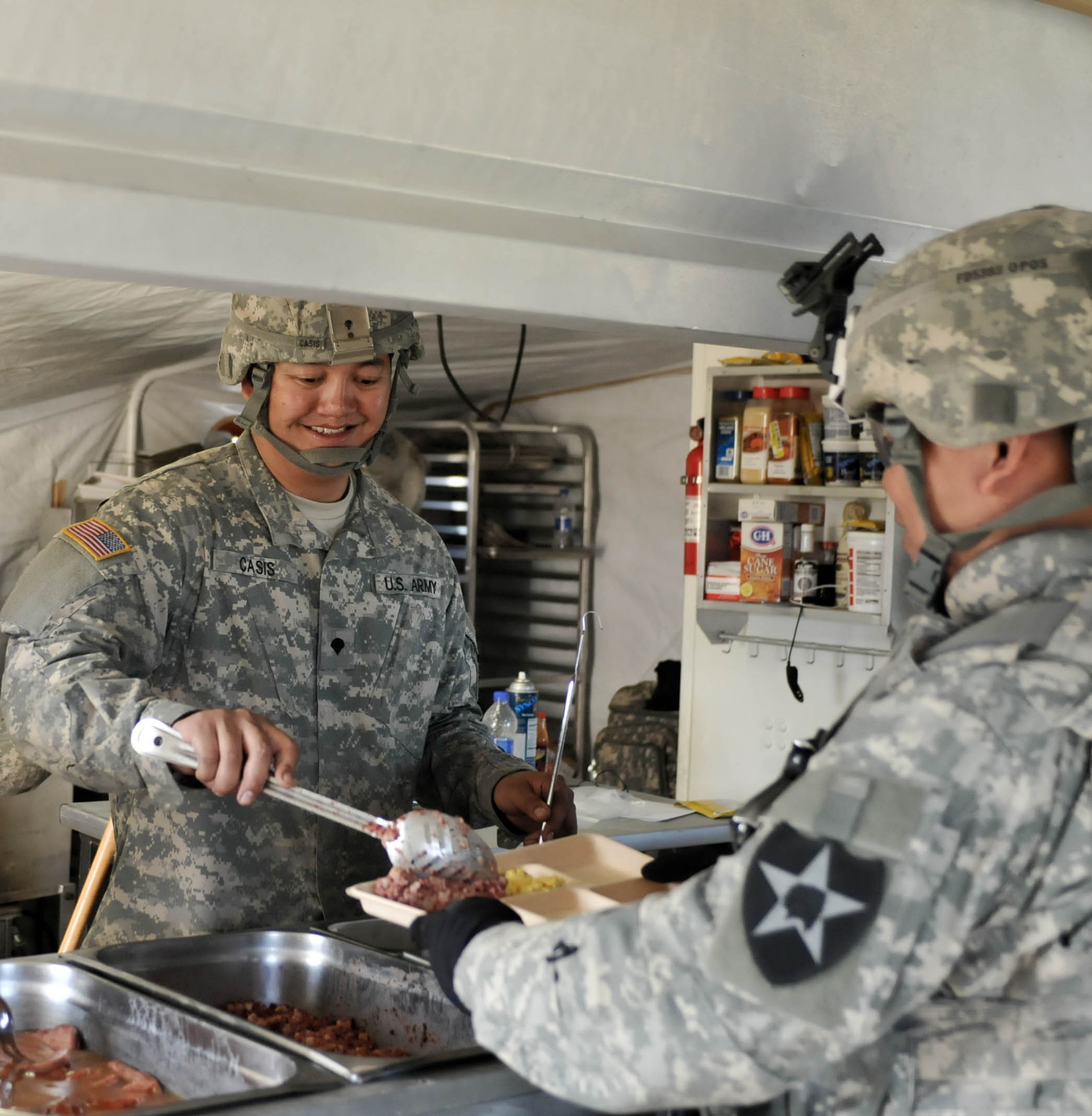YAKIMA TRAINING CENTER, Wash.-It takes effort and cooperation from every piece of the pie for Soldiers to be successful in combat.
Field feeding teams from 3rd Brigade, 2nd Infantry Division, trained on their contribution to the mission by providing fresh, hot meals to Soldiers during the Arrowhead Brigade's multi-echelon field training exercise at Yakima Training Center May 15- June 8.
"Our main focus is making sure that everyone is fed. Nobody deserves to be served food not worth eating because it's a moral booster to be served hot meals. It's great seeing people come in off the field excited to eat," said Spc. James J. Bradburg, food service specialist, Headquarters and Headquarters Company, 296th Brigade Support Battalion, 3rd Brigade, 2nd Infantry Division.
Their goal was to not only sustain Soldiers with hot meals for breakfast and dinner, but to also meet the "Arrowhead" brigade's training goals of achieving full spectrum operations and becoming self sufficient.
"In going back to full spectrum operations it means that we have to go back to the basics, learn how to dig foxholes and secure ourselves. As a support unit we are used to being guarded so that we can concentrate on field feeding," said Cpt. Frederico C. De Vera, commander, HHC, 296th BSB, 3-2 Inf.
The six field feeding teams supporting the exercise prepared and served food using containerized kitchens and assault kitchens, which are mobile field kitchens that feed about 550 Soldiers in one meal.
"Being out here we get to use the (containerized kitchens) and we get to use all the equipment and skills that we have, and it helps us to get used to working in this kind of environment," said De Vera.
Being understaffed, the field feeding teams had to adapt quickly to feeding such a large amount of Soldiers with such little support, said De Vera, who considered it a great learning process.
"Training events like this help to identify our shortfalls, especially being under-manned because we have to do the same job with less personnel, and it only makes us a stronger team and more prepared for anything," said De Vera whose four Soldier team fed about 500 Soldiers a meal.
Sending personnel to pull security, dig foxholes and perform other tasks further shortened their staff. It also tested their soldiering skills.
"Being self-sufficient and knowing those skills goes back to our first days in the Army, but once you get into your job you get into your own comfort zone. You think, I don't have to do that because I have infantry to watch my back," said Bradburg. "Being out here we are performing to the standard and now we have two standards to train to, one being our day-to-day job and now infantry tasks as well."
Instead of occupying already established areas, they had to set up their kitchens, tents and sanitation areas on their own but they couldn't have done it without help.
"Honestly without the support from everyone else we couldn't do our jobs, we need fuel just as much as they need food. Everyone is doing their part so that we can all accomplish our mission here, and we can't be successful without each piece," said Bradburg.
The training gives them all the opportunity to learn, experience and train cohesively to achieve mission success and to learn to appreciate every piece that contributes.




Social Sharing